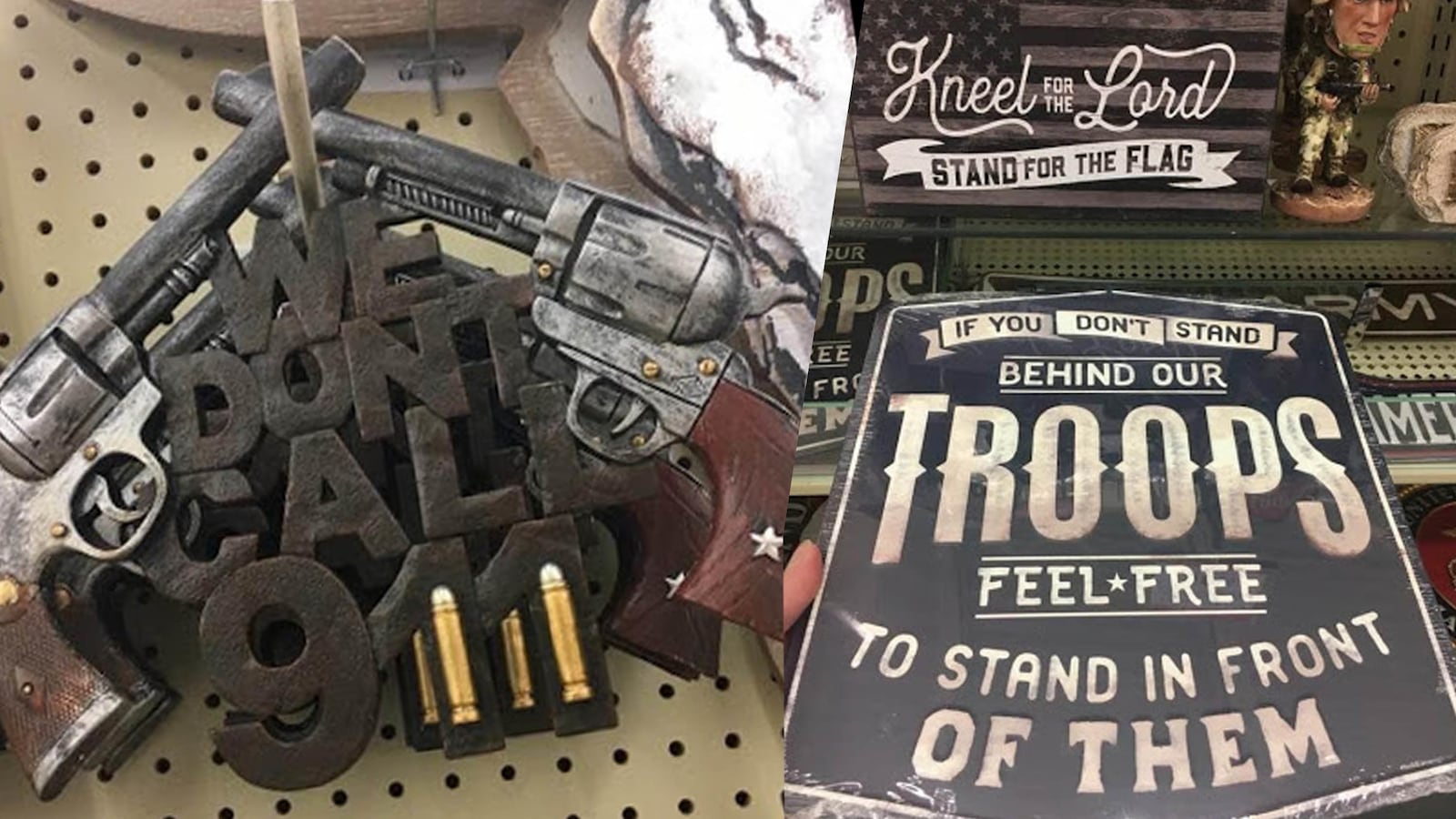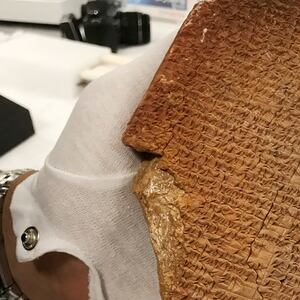Scenes of President Donald Trump proclaiming himself the “president of law and order,” urging the deployment of the military to “dominate the streets,” and then having his path violently cleared of peaceful protesters so that he could hold a Bible in an awkward photo op have resurfaced the perennial question: How can “Bible-believing” white evangelicals condone the violence, racism, and cruelty at the heart of the president and his administration?
The apparent disconnect between theological beliefs and political allegiances invites charges of hypocrisy, but evangelicals themselves are able to hold in tension these conflicting values because for many, evangelicalism is first and foremost a cultural identity. Being evangelical means listening to Christian radio, reading Christian books, and purchasing Christian products that express who they are and what they believe. For “family values evangelicals,” gender is at the heart of this identity, and it is through their distinctive gender ideals that evangelicals are able to reconcile their “biblical values” with their political militancy.
To understand the culture of white evangelicals, look no farther than your nearest Hobby Lobby.
Owned by the wealthy evangelical Green family, Hobby Lobby has donated tens of millions of dollars to evangelical outreach and charity work. (Its most prominent evangelistic enterprise is the newly constructed Museum of the Bible, which has been in the news of late for its purchase of illicit artifacts.) The corporation has also flexed its political muscle in recent years, waging a successful legal challenge to the Affordable Care Act’s contraceptive mandate. But the big box store’s significance to the evangelical world isn’t primarily due to its religious and political activism. Rather, Hobby Lobby has long served as the beloved purveyor of white evangelical culture.
Greeting visitors just inside the doors of any Hobby Lobby are racks of Christian books. Christian publishing has played a key role in shaping evangelical ideals, and with the decline of brick-and-mortar Christian bookstores, Hobby Lobby has stepped into the market, selling an assortment of Bibles (including the conservative ESV Study Bible), books by members of the Green family, and titles penned by representatives of the conservative evangelical world: Franklin Graham, creationist Ken Ham, financial guru Dave Ramsey, cantankerous preacher John MacArthur, stalwart Trump supporter Robert Jeffress, and athletic hero Tim Tebow. On the softer side, there are also books by Beth Moore, Joyce Meyer, Lisa Terkeurst, Chip and Joanna Gaines, and Christian romance writer Francine Rivers.

Women outnumber men in American evangelicalism, and it is quickly apparent that Hobby Lobby caters to its female clientele. Shelves are stocked with decorative items emblazoned with Bible verses and inspirational quotes like “This girl runs on cupcakes and Jesus,” “Beautiful girl, you can do amazing things,” and “All I need today is a little bit of coffee and a whole lot of Jesus.” For this market segment, cultural evangelicalism is an attractive, even winsome brand, and in the end it all comes down to Jesus—albeit a Jesus akin to a comforting latte or a pick-me-up cold brew.
One section of the store, however, has a decidedly masculine feel. Gone are the sparkles and soft pink hues. Instead, one finds an impressive assortment of decorative cowboy paraphernalia: a cowboy figurine kneeling beside his horse at the foot of a rugged cross, another wearing spurs and holding a six-shooter, an array of fake longhorn skulls, a cross wrapped in a bandana, and a small sign bearing an inspirational John Wayne quote. Additional shelves are stocked with wall décor celebrating the National Rifle Association and the Second Amendment, and others emblazoned with Ronald Reagan quotes (“If we ever forget that we’re one nation under God, then we will be a nation gone under.”) There are also plaques celebrating each branch of the U.S. military, soldier bobbleheads, and assorted army figurines.
An end cap display contains a framed “Policeman’s Prayer” (“Lord God, be my protection as I protect others, my strength as I enforce the law, my guide as I lead all to justice, and my source of good as I work against evil”) and a law enforcement photo montage boasting that “real heroes don’t wear capes” inscribed with a verse from the book of Matthew: “Blessed are the peacemakers for they will be called the children of God.” There are also magnetic facsimile police badges, and a figurine of a white police officer holding the hand of a little white boy looking up at him with trust and admiration.
The whiteness of the Hobby Lobby masculine ideal is everywhere apparent. Aside from a couple of hackneyed Native American figurines in the cowboy aisle, the masculine hero of the evangelical world is a white man. Mythical cowboys hark back to an era when white men brought order through violence. An aisle over, patriotic wall signs proclaim: “Kneel for the Lord, Stand for the Flag.” (Unlike Tim Tebow, Colin Kaepernick is no hero to white evangelicals.) In the law enforcement section, “thin blue line” American flag wall canvases come adorned with various Bible verses promising divine protection. (The blue line, of course, symbolizes the line that keeps society from descending into violence, and the flag itself has become a symbol wielded in defense of police and in opposition to the Black Lives Matter movement.)

Evident throughout this section is the glorification of violence. Not only are there multiple decorative items celebrating guns and gun culture (“God, Guns & Guts Made America Free—Let’s Keep It That Way”), but also several conveying thinly veiled threats: a “welcome” sign festooned with two six-shooters; another similarly adorned with six-shooters, bullet cartridges; and a warning that “We Don’t Call 911.” A metal plaque declares: “This Home Protected by the 2nd Amendment,” and another advises: “If you don’t stand behind our troops feel free to stand in front of them.”
Purchasers will no doubt insist that these threats are tongue-in-cheek, but the militancy running through the evangelical masculine ideal is undeniable, particularly when juxtaposed with the soft, inviting evangelicalism marketed elsewhere in the store.
In truth, these two manifestations of white evangelicalism go hand in hand.
Militant white masculinity has been at the heart of “family-values evangelicalism” since the ’60s, when in response to the disruptions of feminism, civil rights, and the anti-war movement, the cultural identity of white evangelicals coalesced around the ideal of masculine protector. Depicting (white) women as sweet, submissive, and vulnerable, evangelicals called for rugged white men to protect women and children by fighting to save “Christian America” against threats foreign and domestic. This white masculine militancy found expression in law & order politics, in the reinforcement of patriarchal authority in Christian homes and churches, and in the ruthless pursuit of culture wars politics.

From their pulpits and through their political messaging, religious leaders such as James Dobson, Jerry Falwell, and Mark Driscoll promoted this rugged and at times merciless model of Christian manhood, but it was largely through evangelical popular culture that the ideal shaped the hearts and minds of ordinary believers. Evangelicals watched movies, attended conferences, and purchased millions of books promoting a vision of manhood where Christian men didn’t flinch from violence in defense of faith and family.
The effects of this militant evangelical masculinity abound. Long before Trump appeared on the scene, white evangelicals supported men who embodied a rugged, even reckless masculinity that promised to bring order through violence, in their churches and in the realm of politics. More than any other religious demographic in America, white evangelicals are also more likely to own a gun, support militant internationalism, condone the use of torture, and favor the death penalty. Evangelicals are more likely to dismiss cases of police brutality, deny that racial prejudice affects law enforcement, and oppose Black Lives Matter. And white evangelicals tend to favor strong, solitary leadership, reject political compromise, approve of breaking the rules when necessary, and embrace “rough politics,” believing, for example, that injured protesters get what they deserved and that the country would be better off getting rid of “bad apples.”
To outside observers, these positions seem antithetical to a faith tradition that instructs believers to love their enemies and turn the other cheek. But in the culture of white evangelicalism, the softer, gentler side of the faith requires militant protection. In the words emblazoned on another wall plaque available for purchase at Hobby Lobby, “A soldier doesn’t fight because he hates what is in front of him. He fights because he loves what he left behind.”
White evangelicals often deride “identity politics,” but their own cultural identity—and the gender ideals at the heart of that identity—dictate their political allegiances. Evangelical support for Trump was never merely transactional. Militant white masculinity binds evangelicals to the politics of the Trump administration, and this affinity explains why evangelical support for the president has remained largely impervious to critique, and why so many evangelicals are unable to see the fundamental contradictions between their political convictions and the faith they purport to believe.
—Kristin Kobes Du Mez is the author of the forthcoming Jesus and John Wayne: How White Evangelicals Corrupted a Faith and Fractured a Nation (Liveright; June 23). A professor of history at Calvin University with a focus on the intersections of gender, religion, and politics, Du Mez has written extensively for The Washington Post, The Christian Century, and Religion & Politics.


